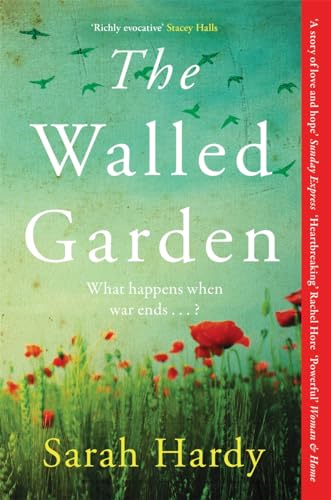The Walled Garden
During WW1, writers including Siegfried Sassoon and Wilfred Owen drew renewed public attention to the psychological damage caused by warfare. In The Walled Garden, Sarah Hardy explores the situation when, after WW2 ended, members of a small East Anglian community return home and attempt to resume life as they once knew it. Much of the novel is dominated by the story of Alice, lady of the manor and wife of Sir Stephen Rayne, a man so damaged by one particular wartime experience that, when the hostilities are over, he rejects his wife’s affectionate welcome and isolates himself from the life he is offered.
It transpires that most of the local community has been, in one way or another, damaged by the war or its effect on their circumstances; hence, the first half of this novel is a rather too downbeat account of things, while poor Alice finds herself coping with not one but two disastrous men, one physically and the other mentally damaged. Alice’s role in the proceedings becomes slightly (and rather unfortunately) diminished. We eventually get told what becomes of her but, by then, how much do we care?
The writer effectively makes her various points by introducing into the narrative useful characters and events, applying them to the structure of the novel almost like pawns in a game of chess. This technique diminishes the impact of storylines which would otherwise carry more emotional weight than they do. The event, details of which we eventually learn, and which so traumatised Sir Stephen, seems no worse than many equally tragic wartime horrors and fails, for this reader, to properly justify his response to it.
Nevertheless, The Walled Garden delivers some nicely observed details of a well-loved location and with a time and a place painstakingly and sympathetically evoked.










